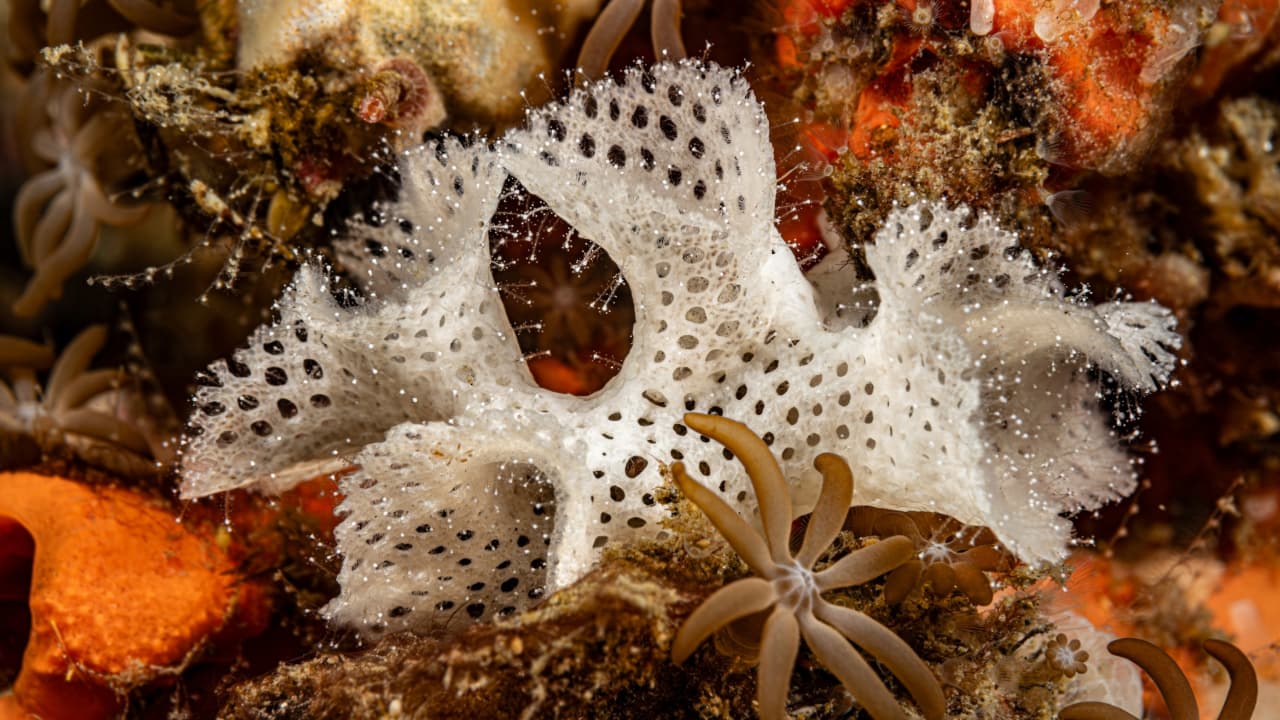A study reveals that climate change, specifically ocean warming and acidification, is negatively impacting bryozoans, tiny sea creatures crucial for marine ecosystems. The researchers study how it could affect the marine ecosystem. Let’s read more.
A recent study by scientists at the Institut de Ciències del Mar in Spain has found that climate change is causing adverse effects on tiny sea creatures called bryozoans. These small animals form hard, often colourful, structures on rocks and other surfaces underwater, acting like ocean’s architects. But rising ocean temperatures and increasing acidity are putting these “fragile fortresses” at risk. One particular species, called Myriapora truncata or “false coral,” is important in the Mediterranean Sea as they build complex three-dimensional habitats that shelter many other animals.
What Is Happening to Our Oceans?
While corals usually get most of the attention for building reefs and habitats, bryozoans also play a vital role in supporting marine life. However, what’s interesting is that they are largely unexplored, especially how they respond to environmental threats like ocean warming and acidification.
Climate change is causing two main problems for the oceans. The water is warming up, which can harm the marine ecosystems. And the oceans are becoming more acidic because they absorb excess carbon dioxide from the atmosphere. Bryozoans and corals are made of minerals like carbonate and calcium, and acidic water makes it harder for them to build skeletons.
What Did They Find?
The research team studied the bryozoans near the island of Ischia Italy. This area has volcanic vents on the seabed that release carbon dioxide bubbles, naturally acidifying the surrounding water. By comparing bryozoan colonies living in these acidified waters to those in normal conditions, the scientists could observe how these creatures respond to stress caused by climate change.
The tiny communities of bacteria and other microbes living with the bryozoans are called microbiome. Scientists found that bryozoans can adapt somewhat to be more resistant to acidic conditions, and their microbiomes also stay mostly stable. However, the variety of useful microbes decreased. Some of these microbes help bryozoans with nutrition, protection from disease, and coping with stress.
Losing this microbial diversity could hurt bryozoan health in the long run. Even if the colonies look healthy on the outside, changes in their microbiomes may be early warnings that they are struggling.
Warming Makes Things Worse
The study is part of ongoing projects in the Mediterranean Sea focusing on how climate change affects bryozoans and their microbiomes. These projects use advanced technologies like 3D imaging to understand the internal structure of bryozoan skeletons and create educational materials to raise awareness.
Over five years of monitoring, the study also looked at how rising temperatures affected bryozoans. The warmer conditions and more acidic water had a stronger negative impact than either factor alone. It reduced the amount of space bryozoans could cover and caused higher death rates.
Although bryozoans tried to adjust by changing their shape and skeletons, this was not enough to protect them from the stress of acidification and warming.
Why This Matters for Marine Life
Bryozoans build habitats that many other sea creatures depend on for shelter and food. If bryozoans decline or disappear, it could threaten many other species in the ecosystem.
By studying the microbiomes of bryozoans, researchers hope to identify helpful microbes that could strengthen these animals against environmental stress. This approach, called a “nature-based solution,” aims to boost the resilience of marine species by working with their natural microbial partners.
The research shows that the effects of climate change on marine life are complex and require teamwork from different scientific fields. Thes researchers hope to better predict future changes and find ways to protect fragile ocean ecosystems.
As Blanca Figuerola, lead author of the study, explains, understanding these small but important creatures is essential if we want to keep our oceans healthy and full of life in the years to come.
